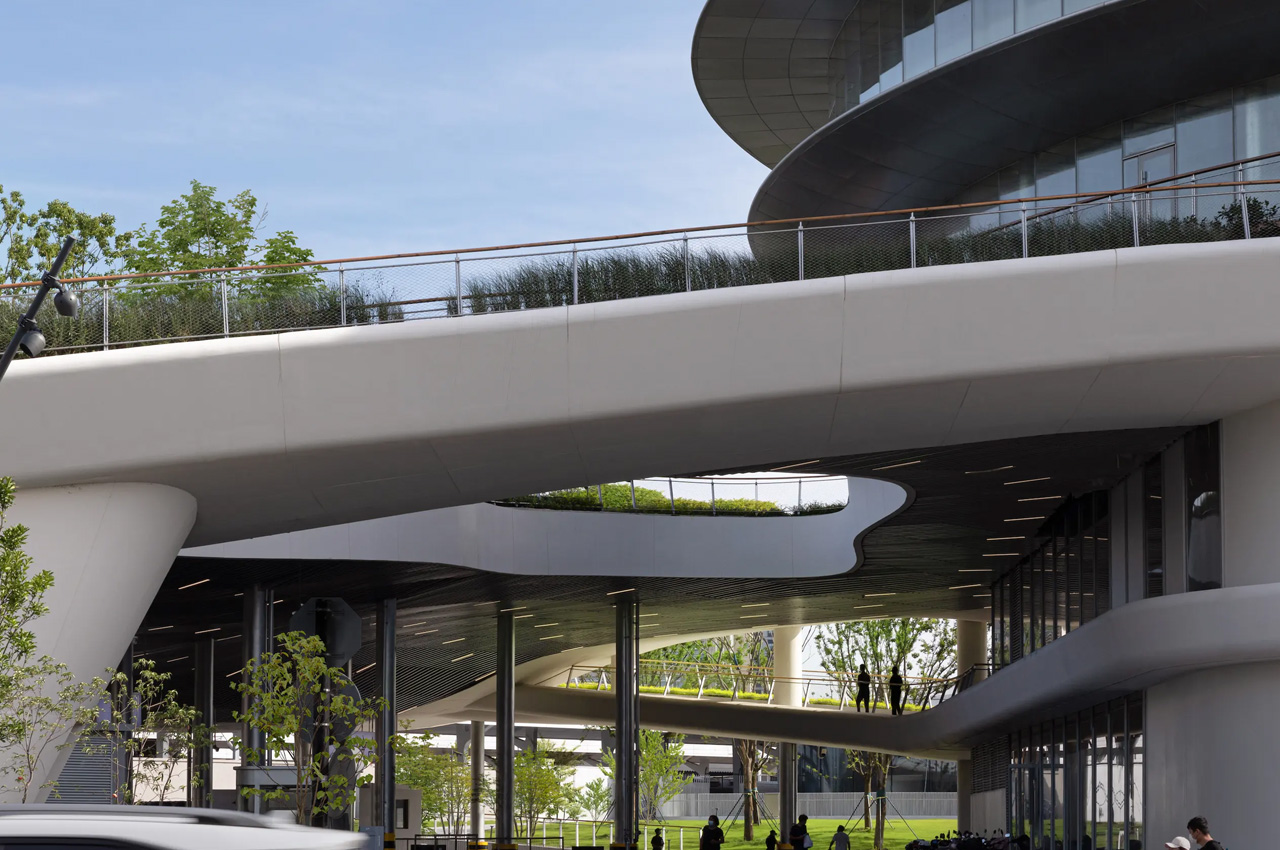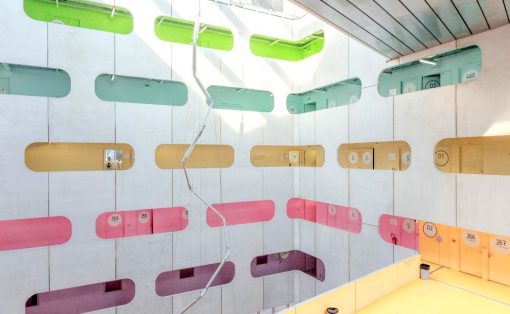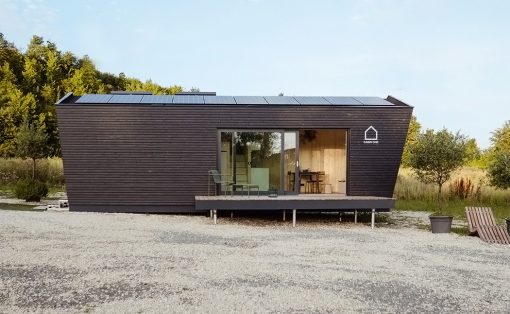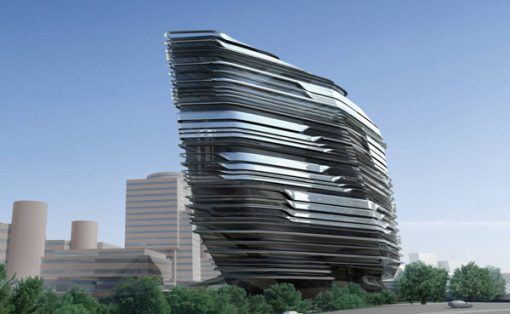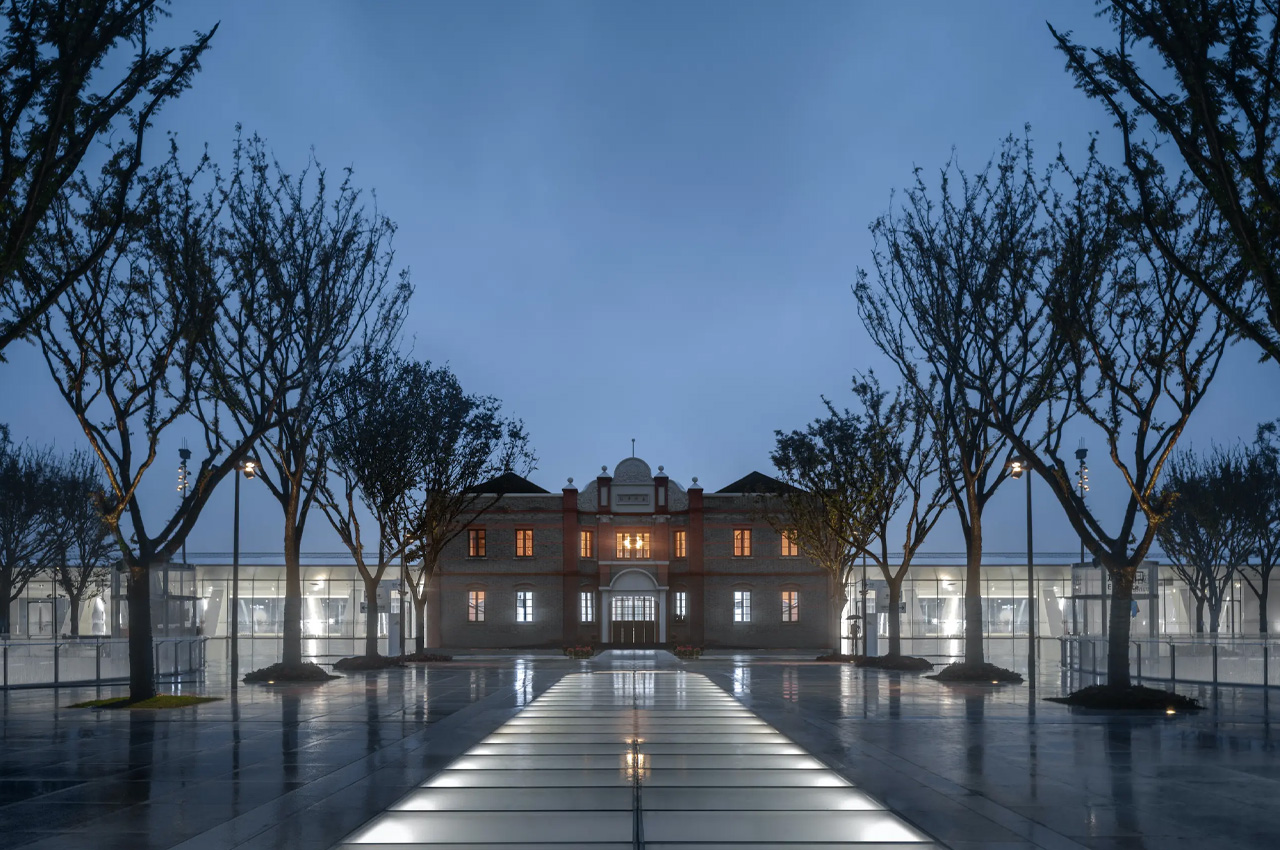
Renowned architectural firm MAD Architects recently unveiled an impressive new train station in Southeast China. The entire project revolved around rebuilding a 100-year-old train station, and completely recreating it brick-by-brick, and it now functions as a massive modern transport hub that is partially sunken underground.
Designer: MAD Architects
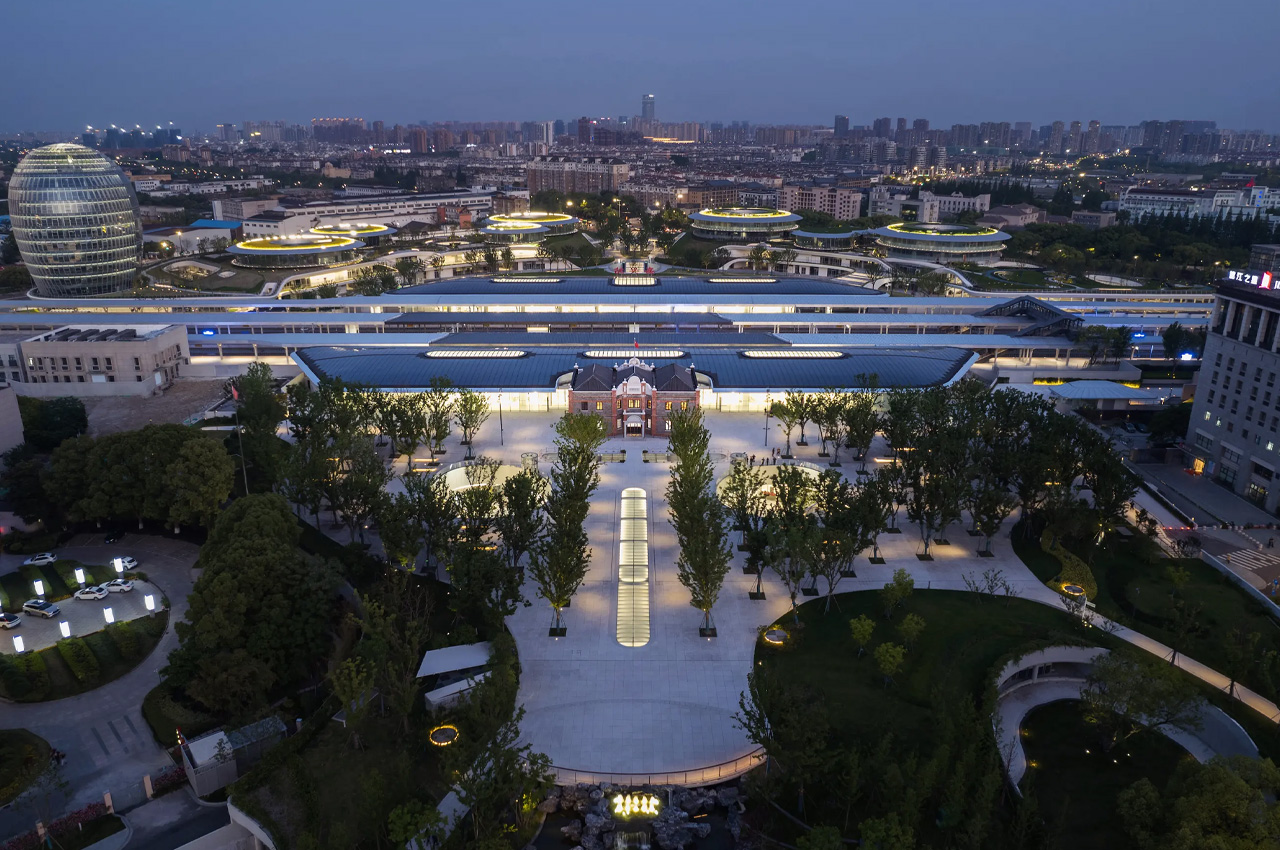
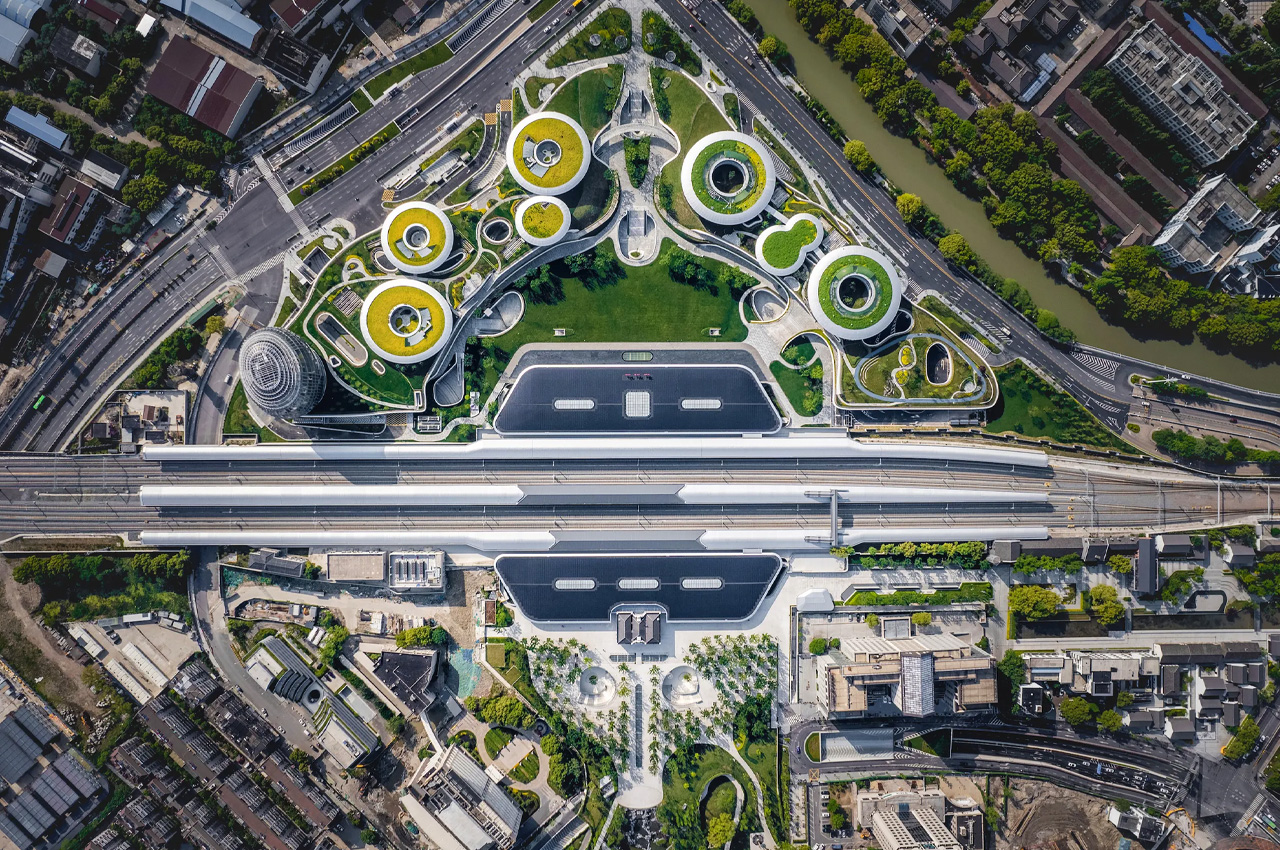
Dubbed the Jiaxing Train Station or the Train Station in the Forest, the original station was constructed in 1907, and then later destroyed and rebuilt in 1937. In 1995 it went through another redesign, and in 2019 it was deemed far too small for modern requirements, and MAD was commissioned to give it a total makeover. The station was a key transport link in the First National Congress of the Chinese Communist Party in 1921, and MAD drew inspiration from this. What’s interesting is that they recreated the original train station, after inferring with experts, and taking loads of old photos and documents into consideration, they successfully created a replica. 21,000 bricks made from mud, and pulled from a nearby lake were used to build the structure, and most of it is underground.
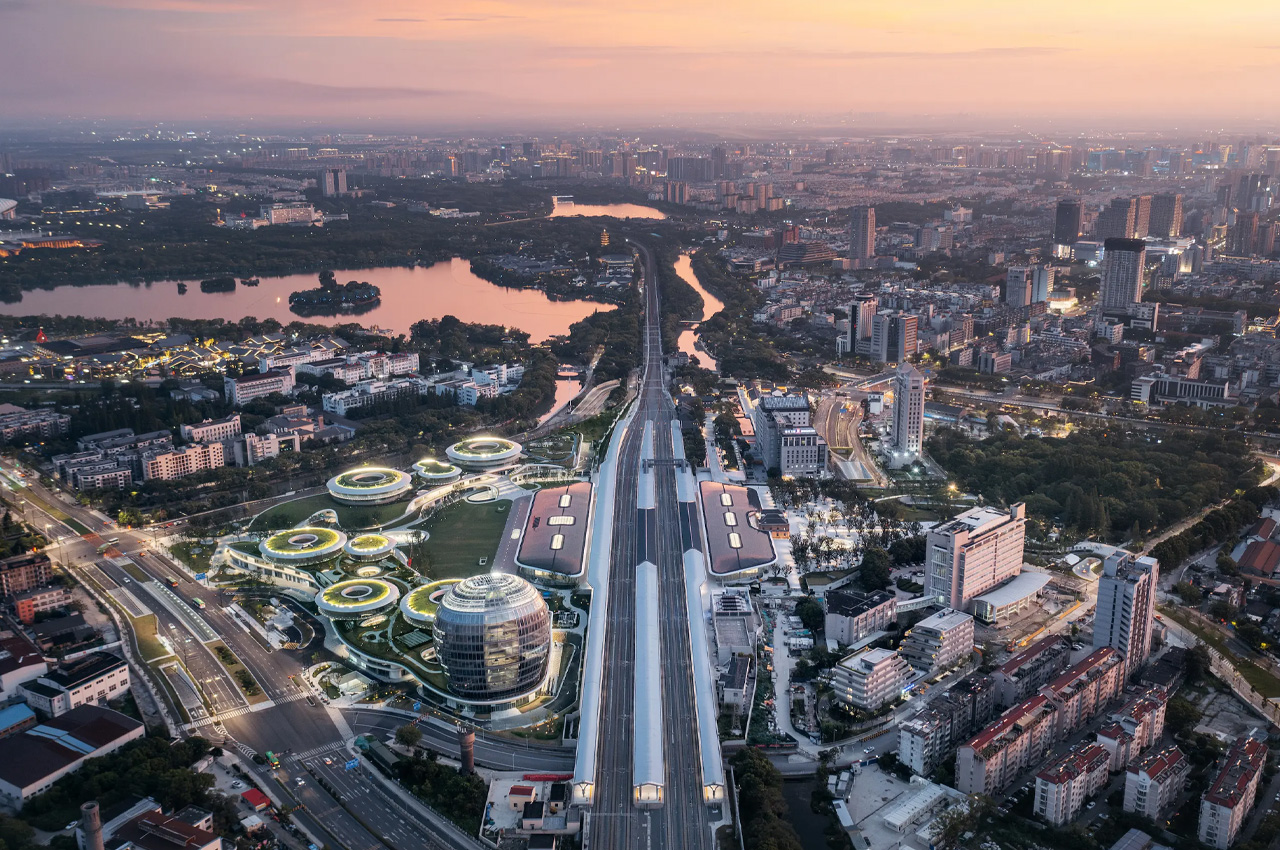
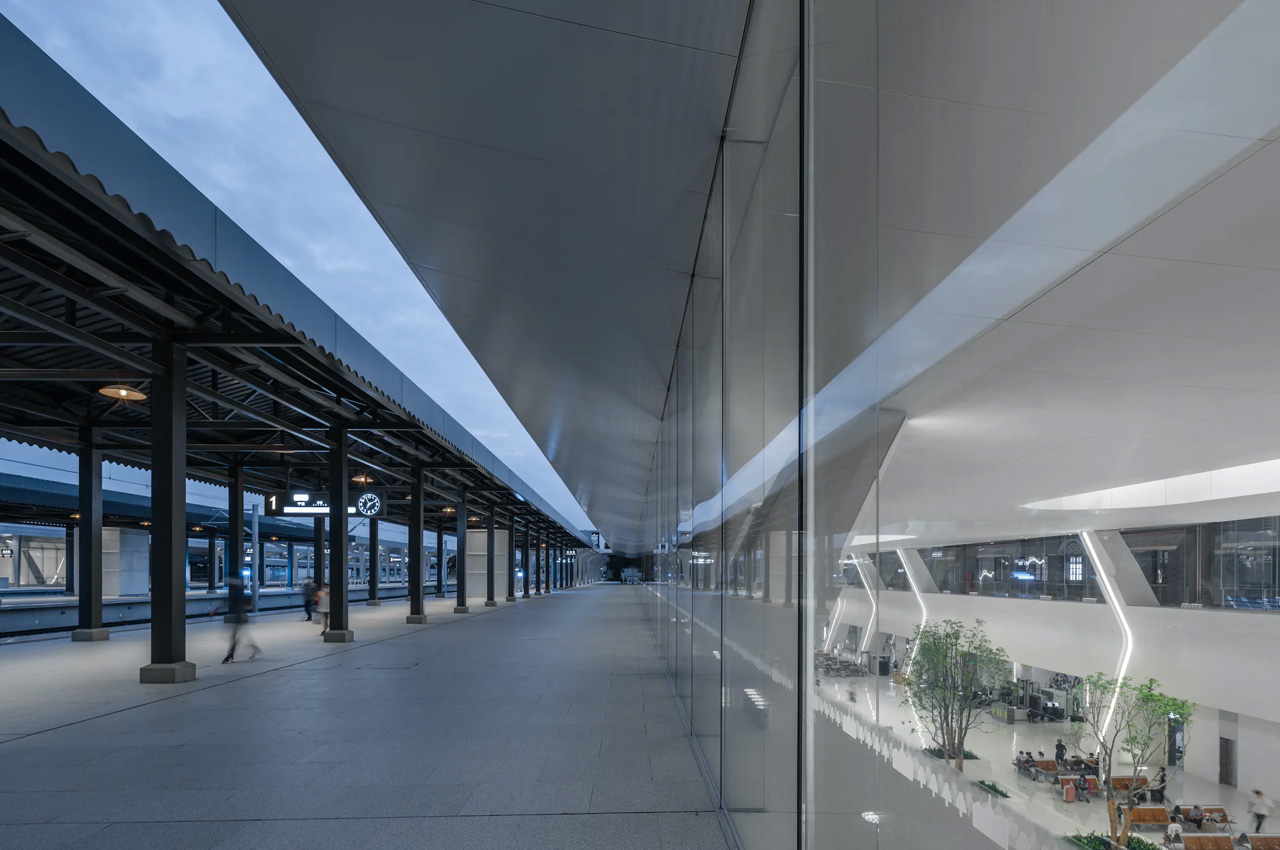
“MAD envisioned a new station that would be both more humane and efficient than its predecessor,” explained the Chinese studio. “The overall design of the interior maintains a dialogue with the recreated 1907 station through a glass facade that clearly expresses the height difference of the two structures from the entrance.
The building’s entry, and exit platforms, major transport and commercial functions, as well as waiting halls, are now underground, which goes against the traditional design concept. The railway station now accommodates three platforms, and six lines, with two arrival and departure lines on each of the upstream and downstream main lines. By 2025, the station will be able to accommodate 5.28 million people/year, with an hourly capacity of 2500 people.
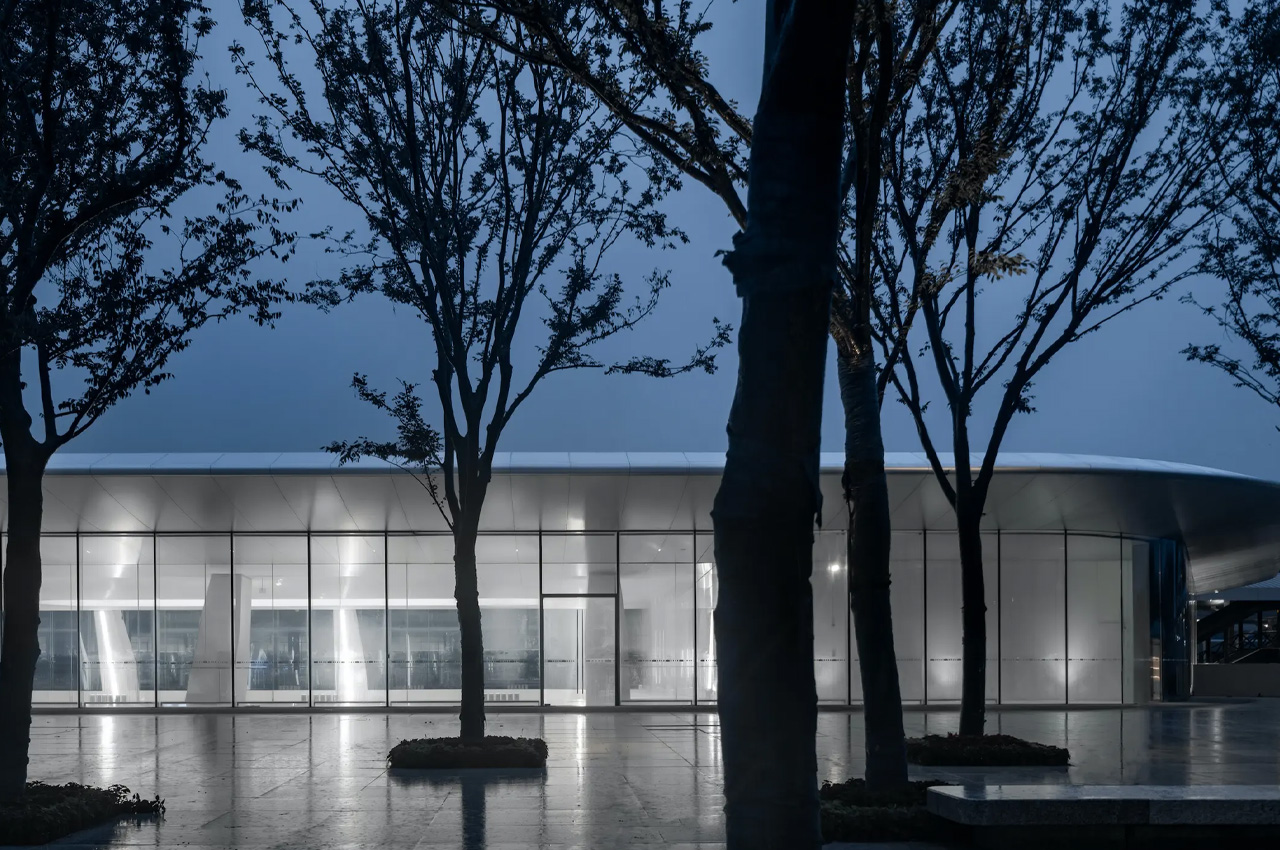
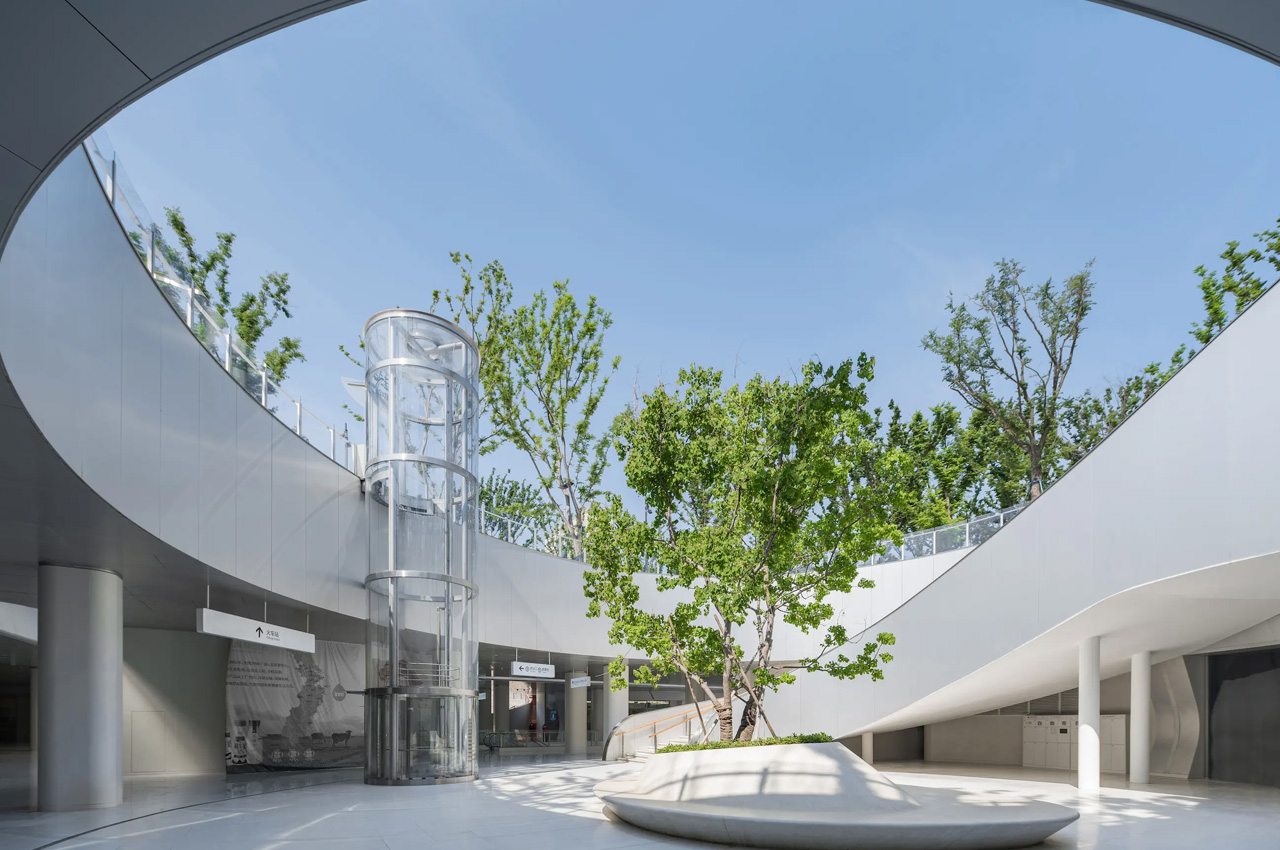
Since the structure is sunken, MAD was able to play around with the landscape, and they planted almost 1500 new trees, while rearranging the site to mimic rolling green hills. It is also connected to a park and a central lawn which will serve as an outdoor venue for concerts and art festivals. Sustainability was also incorporated into the train station, as solar panels were installed, which reduced the draw on the power grid. Generous glazing was used to maximize natural light.
